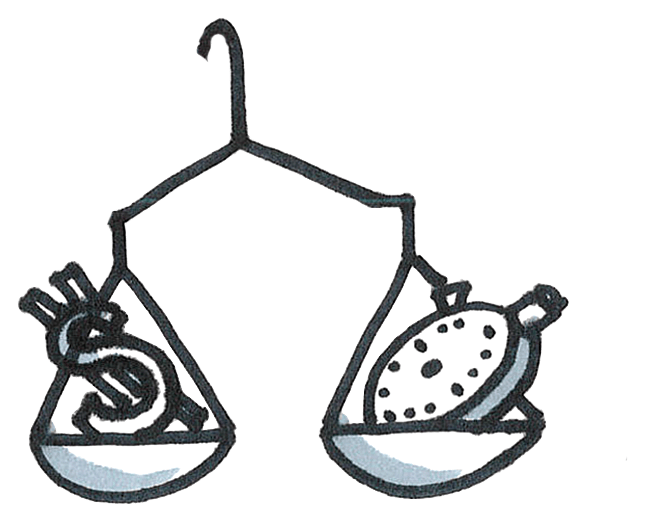-Innovation Investment
Note: We’d like to take a moment to welcome Carmen Neghina, our intern extraordinaire and author of this post, to the startupSQUARE.com team. Yay Carmen! Thanks – Tristan
Why start your own company in a bad economy? Try to ignore the gloomy media picture of the world coming to an end, a crashing economy, high unemployment, business failures and difficulty accessing loans. Yes, I might be asking for a lot, but why not focus on the positive?
The amount of registered US companies does not change drastically from year to year, regardless of the economic climate. Although there is no clear trend towards more companies being launched, the Kaufmann Foundation noticed something interesting: startups initiated in tough times have increased chances of success, with half of 2009’s Forbes 500 companies having been launched in bad economies. The same is true for the world’s fastest growing companies. If you would actually like to see some of the companies that made the best out of recessions, look at Inc.com’s report. Suddenly, a recession doesn’t sound too bad now, does it?
What are the potential reasons behind it? It is quite simple: to succeed in such an economy, you will need talented people, a great business idea, a clear need for your product or service, eager customers interested in your offer and the ability to perfectly manage finances.
Find Your Co-founder
It’s usually difficult to find the right people for the job because they are usually in comfy offices and well-paid jobs working for the dinosaurs running the economy. Now, thanks to round after round of layoffs, talented people are losing their jobs or having their paychecks decimated. This leaves them resenting their current employer and considering a swift departure. What could be better than running your own company, being your own boss, working with equally talented people and escaping the bureaucratic world for one in which you dictate all the rules? Finding the right co-founders gets easier as the number of creative people looking for a change increases.
Unleash Your Creativity
It seems that the entire business world is under scrutiny right now and most flawed business models are likely to show their true colors and be either revised or abandoned. Every industry is being analyzed for possible flaws and improvement areas, so if you think your idea could revolutionize the business world, or at least your industry, now is the time. The tough economy will allow the most creative, resourceful individuals to succeed, not the ones with the most finances; and since the ones that do succeed enjoy long-term success, why not unleash your creativity, get the little black notebook where you jotted down all your crazy ideas, and see which ones could literally transform the world?
Shai Agassi started Better Place after being challenged to find an idea for how he would go about reducing the global dependency on petroleum. Now, his business model could cause a paradigm shift that would result in a massive disruption to the automobile industry through the creation of an infrastructure that would support EV cars.
Pick an industry and think how you would change it for the better, brainstorm it with other people interested in your market, discuss it with your friends and family, and you might be able to generate equally brilliant ideas.
Find Your Niche
The businesses that manage to thrive in harsh economies are the ones whose services or products are truly needed. Why? Because most clients are likely to cut down on unnecessary expenses in order to save money. In all likelihood, if your product seems more of a luxury than a necessity, chances are you will not make it right now and you should maybe shelf the idea for a later time; but if you can deliver a revolutionary product, or service, then your chances of success are higher. If your product is a necessity, weaker competition from larger corporations means more chances to succeed, especially in niche markets which are usually overlooked as they do not meet the innovation investment demands of large firms, but have growth potential and are attractive for startups. Market and technological discontinuities are the basis of market entry triumph; either can generate success and together they are unbeatable. Just find your niche!
Customer Development
There is probably no company out there not trying to cut down costs. Can you use this “spend-less” attitude to your advantage? Avoid the costs of hiring a huge team of testers or developers and use alpha-testers to fine-tune your product; offer it for free to the first customers so that they can test its features and give you valuable tips on how to improve it. The result? Valuable customer feedback that can make your firm customer oriented and focused on delivering customer satisfaction. If your initial testers are happy with the product, they are likely to continue to support your efforts, and they will also provide valuable testimonials and word-of-mouth that will help you promote your business and gain new clients. Offering your product to companies that cannot live without it but cannot afford it either will gain you the status of “life-saving”; not too bad in terms of publicity if you can keep your costs low enough to afford it.
Also, whenever a firm will need a certain service or product, each supplier will be under more scrutiny than ever and managers use extensive information gathering before each purchase decision. So if your product is at least equally good or who knows, even better, your chances of getting key accounts increase.
A Lack of Capital Can Lead to Clear Focus
Small budgets equal smart innovation investment. If you only have a little money to spend, you have to focus on the important aspects of your business by using your funds to develop a better process, increase your product’s quality or provide better customer service. All of which can be transformed into significant competitive advantages and sources of revenue in the long-term. When differentiation is not based on who has the most money to advertise, then startups with a better product have a better chance of success.
Setting up an typical business will only cost you about 25K, and if you followed our previous blog post, then you know we don’t really think significant amounts of capital are absolutely necessary for an innovation investment when setting the foundations of your business. Money is no longer the holy grail of setting up a successful business in a weak economy, so take your chances while finances lack importance and ideas get the spotlight.
Stick Together
Cooperation can help your company grow and small firms have to stick together. Partnering up with other small companies that can complement your offering is sure to provide you with an edge. If you are just at the beginning, it is highly unlikely you can cover an entire service area; you need viable partners.
The new economy should be about co-creation and not about destroying competition; if there is a way a different business out there could help yours, why pass on the opportunity? Find the right partners, research what they are doing, understand how they could add value to your own product or service and you might just get the recipe for success. It is up to new companies to set the pace for the future, so you can be one of the innovators that choose to stop regarding every other firm out there as your competitor. Instead, try to implement a new business philosophy that could render a better economic model/innovation investment.
Bonus: You Can Help the Economy Recover!
The world economy could surely benefit from a number of innovative startups implementing better business models/innovation investment, generating creative ideas and executing them, using cooperation to thrive and employing the talent laid off by big corporations. We hope we are helping debunk the myth that you should wait to introduce your business in a better economy. There is no better time to act than NOW. So get your startup started!
Carmen loves everything marketing related, especially linking theory with practice. She is currently getting her Master of Science in Marketing from Radboud University Nijmegen and is busy writing her thesis on communication techniques for brand extensions. She is interested in social media, networking, branding and has recently developed a passion for Terry Pratchett and social design.
Make better product and business decisions with actionable data
Gain confidence that you're running the right kind of tests in a five-week series of live sessions and online exercises with our Running Better Experiments program. Refine your experiment process to reduce bias, uncover actionable results, and define clear next steps.
Reserve a seat



